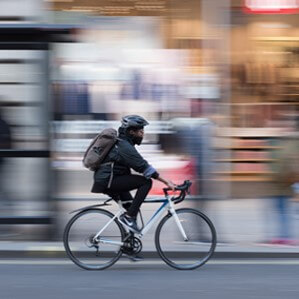
AI-generated summary
Recent technological advancements have significantly transformed urban mobility, introducing services like carsharing, scooter rentals, and electric vehicles hired by the minute, which are now common in many cities worldwide. Although still emerging, private and shared autonomous vehicles promise to further revolutionize how we live and move. The concept of “Mobility as a Service” (MaaS) integrates these innovations, creating a seamless and smart mobility ecosystem powered by technology.
Experts highlight that transport has always driven economic and social change, and the fusion of information and transport technologies will reshape cities profoundly. Marco Pedrazzo notes that commuting time could be repurposed for work or leisure, and parking spaces could be freed up for alternative uses. Jaime Rodríguez emphasizes that as cities move away from car-centric designs, shared mobility will redefine urban spaces, affecting everything from real estate and electrification to the sensory experience of cities. The widespread use of smartphones, with 96% of Spaniards owning one, facilitates the adoption of these shared mobility services. However, challenges remain, particularly in improving intercity connections. Addressing these issues is crucial for realizing the full potential of smart urban mobility in the near future.
La movilidad es uno de los aspectos de la vida urbana que más prospección del futuro.
One of the facets of urban life in which the depth of the technological changes of recent years is most noticeable is, without a doubt, that of mobility:
- carsharing , scooters, motorcycles and electric cars that are hired by the minute, are already common in many cities around the world.
- Although still at a very early stage, private and shared autonomous vehicles will change our way of life.
- The concept of mobility as a service emerges with a lot: MaaS (“Mobility as a Service“).
- When we apply new technologies to mobility, we talk about “Smart Mobility“
“Transport has always been the engine of economic and social change. The appearance of cities will change hand in hand with the combination of information and transport technologies,” says Marco Pedrazzo, head of business development at the architecture firm Carlo Ratti Associati. “The time spent commuting to the office will become work or leisure time; the space for car parks will be free for other uses,” he adds.
“We have built our cities around cars, but the way we relate to them is changing dramatically,” says Jaime Rodríguez, former CEO of Blablacar for Spain, Portugal and Germany.
“The new forms of shared mobility allow us to configure a completely different space,” he proposes. “This revolution will affect everything from the real estate sector to the electrification of cities or even how cities smell, feel or sound,” adds Rodríguez.
One of the facilitators of the great transformation to which Jaime alludes has been the fact that almost all citizens have a smartphone (96% of Spaniards, according to the Mobile Report in Spain and in World 2019 of Ditrendia), a device used mostly to contract shared mobility options.
Cities still have a big problem to solve in this area: the streamlining of intercity connections.
In the following video, Natalia de Esteva-Úbeda offers her vision of the challenges that cities must face in terms of mobility:

Mobility consultant for the European Commission.
